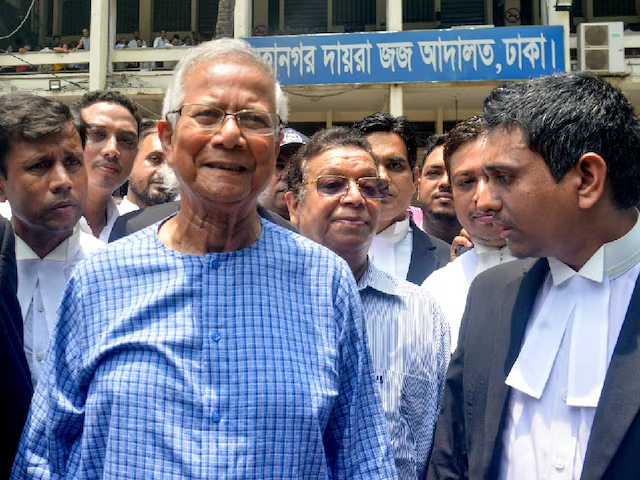
How China Reacted To Nobel Laureate Yunus’s Interim Govt After Sheikh Hasina’s Fall
Follow us on :-
China on Friday welcomed the formation of the interim government in Bangladesh headed by Nobel laureate Muhammad Yunus, saying that Beijing is ready to advance the comprehensive strategic cooperative partnership between the two countries.
“The friendship between China and Bangladesh runs long and deep. China values its relations with Bangladesh, and stands ready to work with Bangladesh to promote bilateral exchanges and cooperation in various areas and further advance our comprehensive strategic cooperative partnership,” a Chinese Foreign Ministry statement said.
Yunus, 84, on Thursday took oath as the head of the interim government, replacing Sheikh Hasina who abruptly resigned and fled to India leaving the country in turmoil following deadly protests against her government over a controversial quota system in jobs.
Noting that Bangladesh has formed an interim government, the statement said, “We stand firmly by our policy of good neighbourliness and friendship with all people of Bangladesh.” As violence erupted after the fall of the Hasina government, China – which has over USD 25 billion in investments in Bangladesh – said it sincerely hoped that social stability would be restored soon in the country.
The rapid fall of the Hasina government came a month after her high-profile visit to Beijing during which the two countries elevated their bilateral ties to a comprehensive strategic cooperative partnership. China had rolled out a red carpet for Hasina during her visit here from July 8 to 10 during which Chinese President Xi Jinping and Premier Li Qiang held talks with her and two countries signed 21 agreements.
During their meeting, Xi said the two countries have elevated their ties to a “comprehensive strategic cooperative partnership,” which, in Chinese diplomatic jargon, represents an elevated recognition and importance Beijing attaches to its interests and its closeness with that particular country.
Xi made a similar announcement when Maldives President Muhammad Muizzu visited Beijing after his election, elevating the ties from China’s strategic perspective, besides broader economic and trade packages. The elevation of the ties with the countries in India’s immediate neighbourhood highlights the importance Beijing attaches to these countries for its strategic pursuits widely regarded aimed at containing India’s influence in the region.
Chinese analysts said the fall of the Hasina government doesn’t make much difference as Beijing shares close ties with the opposition Bangladesh National Party, (BNP) headed by former prime minister and Hasina’s archrival Begum Khalida Zia.
Though slow to recognise Bangladesh after it became an independent country in 1971, breaking away from Beijing’s close ally Pakistan, China established diplomatic ties with Dhaka in 1976 and later consolidated its strategic ties under the regimes of Ziaur Rehman, his wife Khaleda Zia and later their staunch opponent Hasina.
